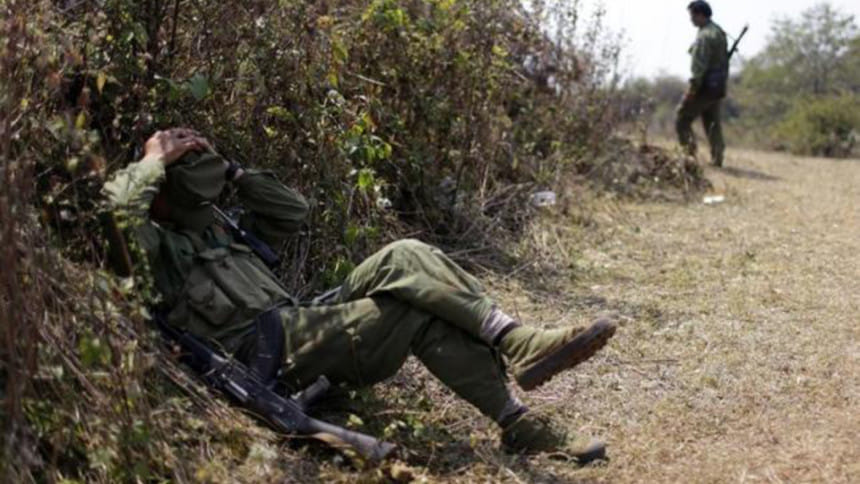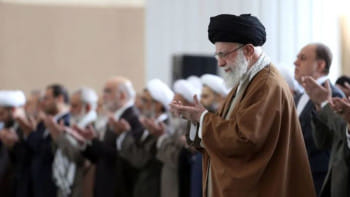Myanmar junta, opposition set to extend ceasefire, Malaysia PM says

Myanmar's junta and a key opposition group have indicated they will extend a ceasefire to support more aid efforts after a devastating earthquake, Malaysia's Prime Minister Anwar Ibrahim said today, following rare high-level talks with the ruling military.
Myanmar has been in the throes of an expanding conflict since the military led by Senior General Min Aung Hlaing ousted an elected government in 2021 and formed the State Administration Council to run the country.
In late March a 7.7 magnitude earthquake hit the country, killing over 3,600 people and creating a humanitarian crisis.
Anwar, who is also the chair of the ASEAN regional bloc, has since Thursday held talks with Myanmar's junta chief and the shadow National Unity Government that is battling the military, seeking to curb the ongoing conflict to push aid into the country.
"There will be a ceasefire and no unnecessary provocations, because otherwise the whole humanitarian exercise would fail," Anwar told reporters in Bangkok.
"My initial exchange with both the SAC prime minister and NUG has been very successful," he said.
After the March earthquake, Myanmar's junta announced a 20-day ceasefire on April 2, following a similar move by the NUG, with more than 3.5 million people already displaced by the civil war and an economy in tatters.
The junta, however, has continued military operations in some areas, including airstrikes, according to the United Nations and other groups.
In his talks with the NUG, Anwar said he had conveyed that ASEAN would continue dialogue with it and the junta, and humanitarian aid would be provided to required areas, irrespective of who was in control.
"We understand that ASEAN, in its role as a regional body, may seek to engage with all actors involved in Myanmar's situation," a NUG spokesperson told Reuters.
"However, it is crucial that such engagement does not grant legitimacy to the military junta led by Min Aung Hlaing."
PEACE AND POLLS
Anwar's move to directly engage with the junta, after years of ASEAN barring Myanmar's generals from its meetings for their failure to comply with its peace plan, could provide a potential opening to resolve the protracted conflict, analysts said.
In particular, Anwar should extend his dialogue process to include four of Myanmar's oldest ethnic armed organisations that control swathes of the country's borderlands, said Fuadi Pitsuwan, a political science scholar at Bangkok's Thammasat University.
"They are critical stakeholders in any viable peace process," he said.
The ASEAN bloc, which also includes Brunei, Cambodia, Indonesia, Laos, the Philippines, Singapore, Thailand and Vietnam, will remained focused on implementing its peace plan, Anwar said.
"I've already consulted ASEAN leaders that I will continue to engage," he said.
Saw Taw Nee, spokesman for the Karen National Union, a major ethnic outfit that holds territory along the Thai-Myanmar border, urged ASEAN to change its approach and reach out.
"ASEAN leaders must give credit and recognise us," he told Reuters.
The renewed move to intensify dialogue in Myanmar also comes amid a junta plan to hold a general election in December, an exercise derided by its critic as a sham to keep the generals in power through proxies.
In Bangkok, Anwar underlined the need for an inclusive, free and fair election - a message he said that had been delivered to the junta, which wants to press ahead with the election plan without delay.
Still, some analysts warn that ASEAN must be caution.
"Min Aung Hlaing has shown that he cannot be trusted," said Thitinan Pongsudhirak, a political scientist at Chulalongkorn University.
"So ASEAN under Anwar has to be careful not to get taken for a ride."

 For all latest news, follow The Daily Star's Google News channel.
For all latest news, follow The Daily Star's Google News channel. 



Comments